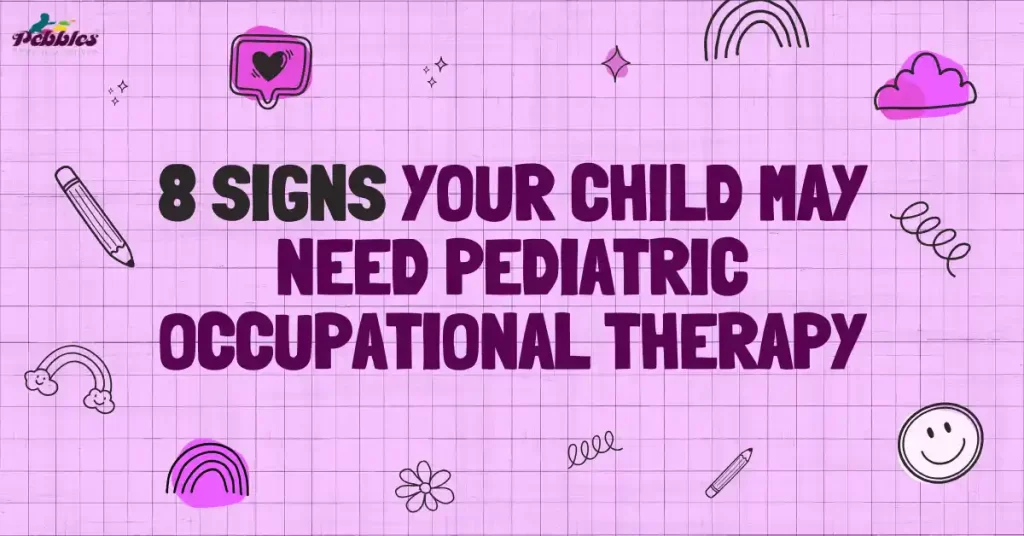8 Signs Your Child May Need Pediatric Occupational Therapy
Whether your child needs pediatric OT (Occupational Therapy) can only be determined by paying attention to early signs. Children grow at different velocities, but some might require additional attention in reaching developmental stages. Here, we shall look into 8 pediatric occupational therapy signs that would tell if your child requires professional help to perform well in daily activities.
What Is Pediatric Occupational Therapy?
Pediatric occupational therapy teaches children to acquire abilities that can be used in daily-living activities. It also involves the physical, sensory, and cognitive issues that help children perform playtime, school, and daily routines activities.
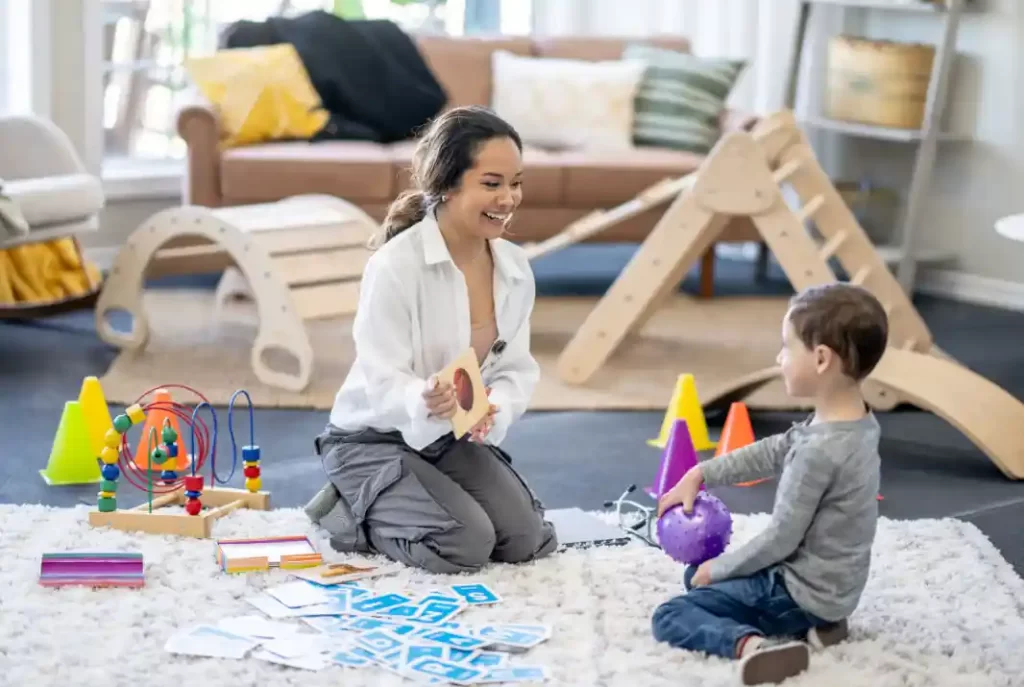
How Is Occupational Therapy for Children Different?
Occupational therapy for children varies from adult’s as it emphasizes on a child’s special need to develop, learn and communicate when playing, learning and relationships. More often, adult therapy can turn out to be rehabilitation whereas, occupational therapy for preschoolers works on escalating capabilities through games and even practical tasks.
The therapists use imaginary techniques such as playing and doing lots of practical things so that the children become very happy while developing the skills that will enable them live their lives to the fullest.
In addition, therapists take into account the environment in which the child lives while making sure that there are practical and applicable things that can be implemented in school and at home. In this way, techniques of occupational therapy are always tailored specifically to the young learner, thus satisfying the occupational therapy needs of its users, making it an essential resource for families in need.
Who Need Pediatric Occupational Therapy?
So, when is occupational therapy needed? Not all children need pediatric occupational therapy, but sometimes the symptoms of some children may call for the treatment. Such children who experience developmental delays, sensory processing difficulties, or physical disabilities usually require assistance in developing the needed skills.
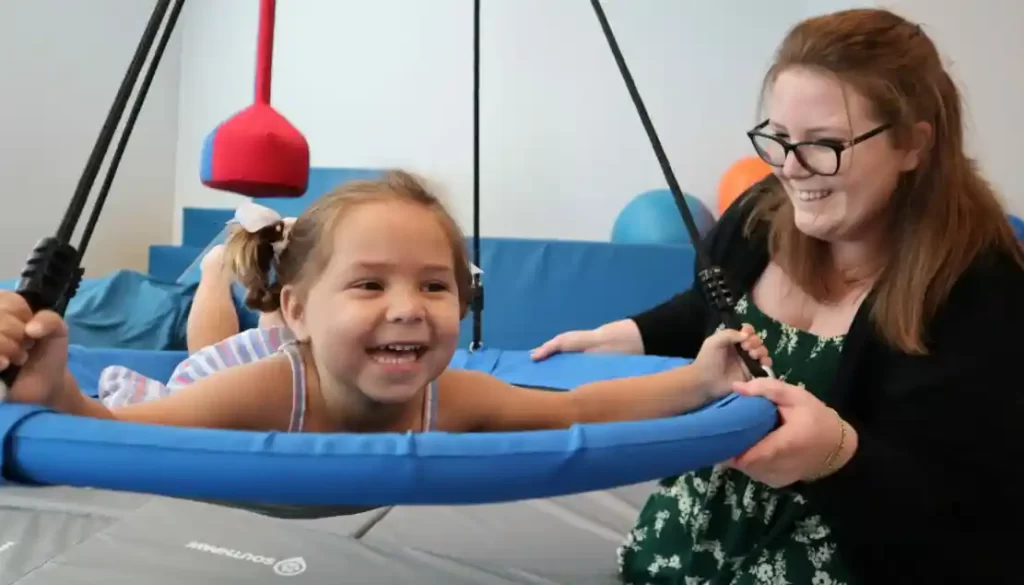
In addition, children suffering from, for example autism spectrum disorder, ADHD may also benefit considerably. Occupational therapy signs appear in some difficulties that may be in fine motor skills, social interactions, or self-regulation.
Parents should look for signs of frustration or avoidance in activities that require these skills. Determining who needs occupational therapy is one way to assure children receive the support they need for their growth and development, which enhances the quality of life.
Who Benefits from Pediatric OT?
Some causes of problems for children include physical disabilities, cerebral palsy, and Down syndrome, among others, which might be subjected to pediatric occupational therapy.
Besides, OT can be helpful for children having learning problems, emotional disturbances, and behavior issues. It helps them increase their functional capabilities on a daily basis. Occupational therapy for special needs helps children develop vital skills of life, increases social interaction, and makes them independent.
Benefits also reach the child whose parents report reduced tension and better communication when their child participates in occupational therapy. This would mean that, knowing the symptoms of occupational therapy signs in children, parents can be more aware of when intervention is necessary, thereby setting up a support network for their child’s development.
Signs Your Child Can Benefit From Occupational Therapy
It’s also important to know the signs your child can benefit from occupational therapy.
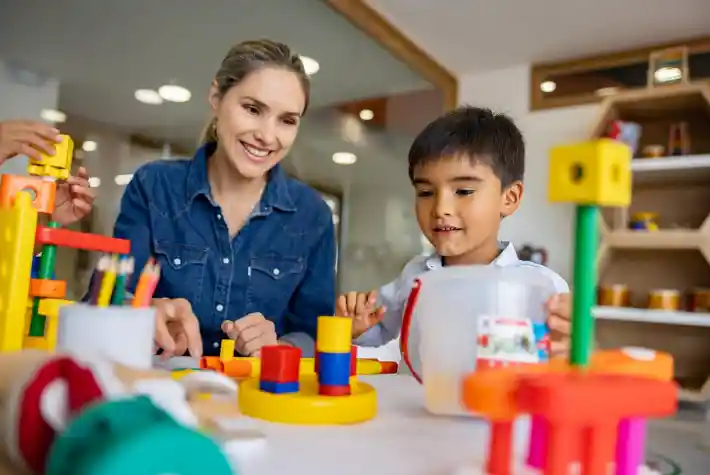
Below are some of them:
- Unable to use fine motor skills for instance holding a pencil or scissors.
- Social interaction difficulties-for example, having problems with sharing or making friends.
- Sensory processing disorder-some examples include hypersensitivity to noises or textures
- The individual delays self-care skills, for example, dressing or feeding.
- Struggling to follow instructions or sustaining concentration in activities.
It is through these pediatric occupational therapy signs that, if noticed, may necessarily mean that your child needs support. Learning how to tell if your child could benefit from occupational therapy helps parents find help for their child in good time. This way, they greatly benefit since the child’s development will be maximally improved.
8 Signs Your Child May Need Pediatric Occupational Therapy
The key to helping any child thrive would be early identification of developmental challenges. Pediatric occupational therapy is constructed to help children who experience difficulty with daily tasks, such as fine motor skills, sensory processing, or self-care activities. The right pediatric occupational therapy signs may direct a parent toward the right intervention. Here are 8 signs your child needs occupational therapy that could require support:
1. Delayed Developmental Milestones
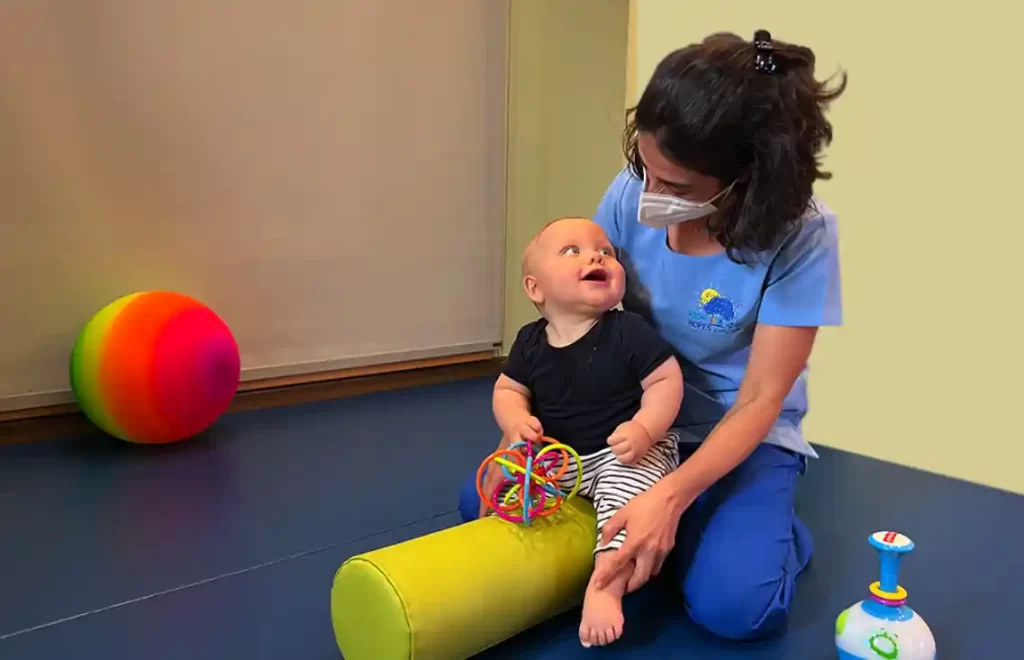
If your child frequently fails to reach age-based developmental milestones, like rolling over, crawling, or walking, then most probably it’s going to be a sign that your child needs occupational therapy. Failure to achieve milestones in any of the above areas is the most common reason for pediatric occupational therapy signs. Occupational therapists will work with children so that they achieve the basic milestones and gross motor skills required at their age.
- Occupational therapy developmental milestones range from appropriate age play, fine motor skills, and everything in the middle.
- Pediatric therapies also addresses developmental delays and fosters development in general.
2. Difficulty with Fine Motor Skills
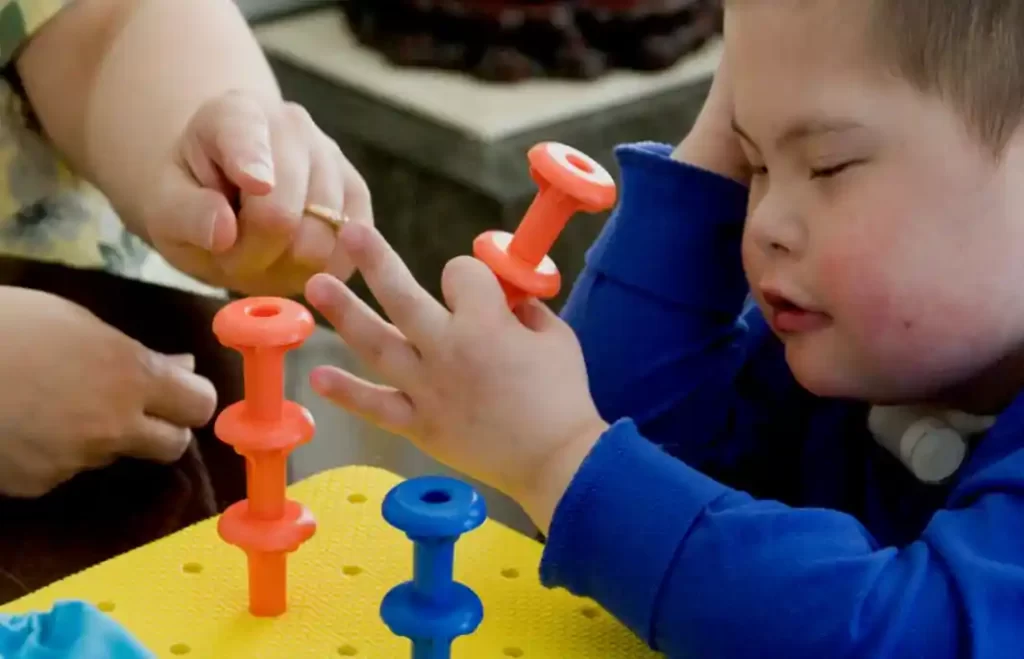
Children with symptoms of precision include inability in holding a pencil or scissors, and a problem in the fine motor areas can make it quite hard for them to write, dress, and even feed themselves.
- Repeated frustrated efforts at challenge events such as dressing, coloring or cutting paper.
Occupational therapy helps children strengthen the hands and coordinate for any activity of the day.
3. Sensory Processing Challenges
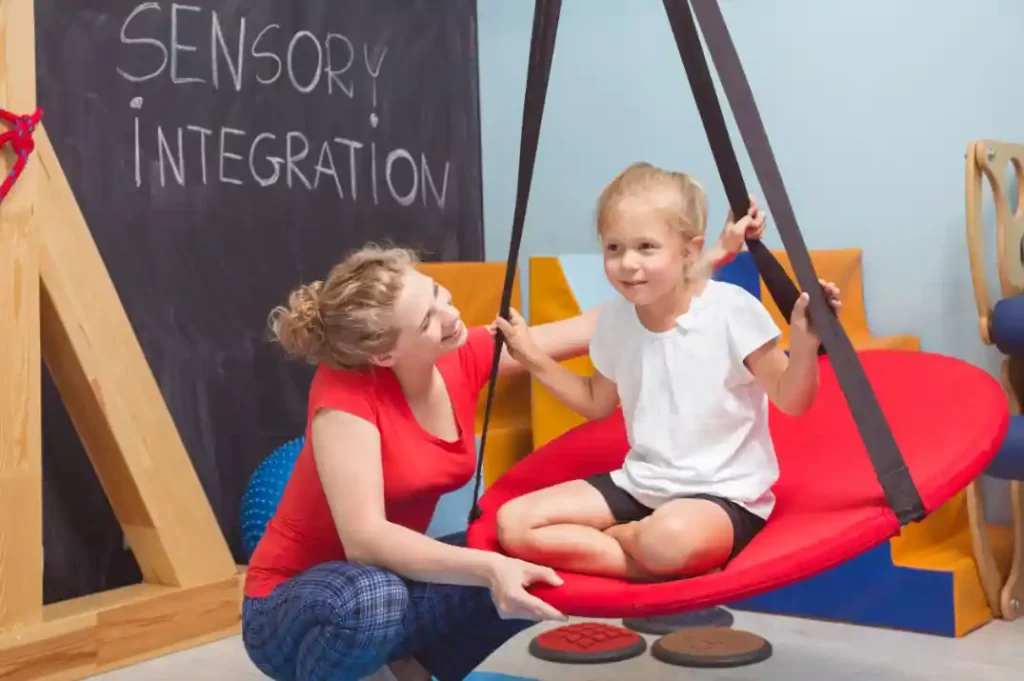
Other manifestations of pediatric occupational therapy signs are sensory processing difficulties. A child may either be hypersensitive to some sounds, textures, or lights while sometimes under-responding to some kind of sensory input.
Such challenges can cause an impairment in a child’s ability to participate in some regular daily activities and interact with others.
- Some of the earliest pediatric occupational therapy signs involve avoiding certain textures and sensitivity towards sound.
- The occupational therapists help children to regulate the sensory responses.
4. Poor Gross Motor Skills
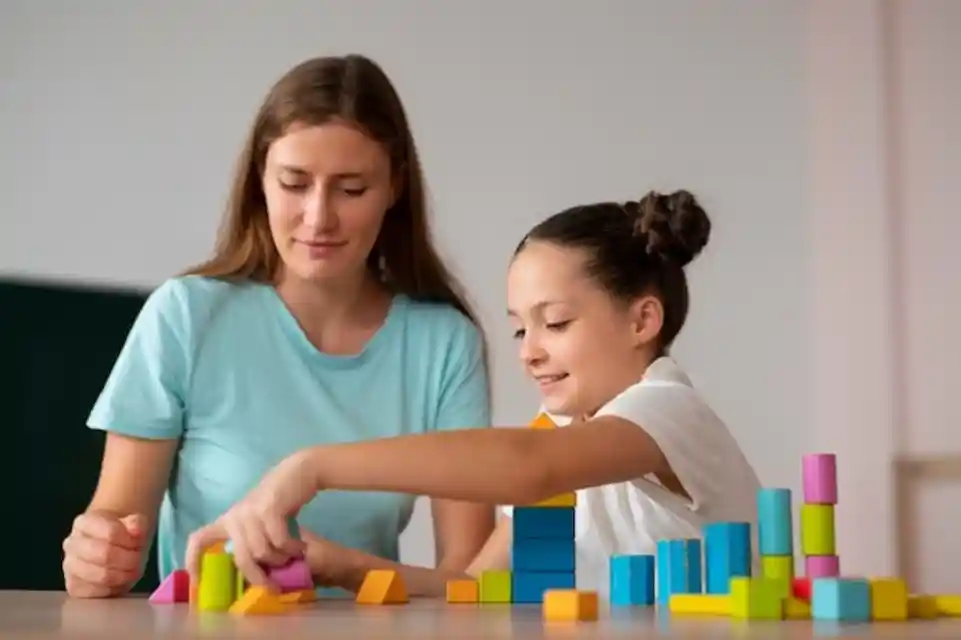
When the gross motor skills are really poor in the children- even simple jumping, climbing, and balancing activities become a hard task for them. Commonly observed pediatric occupational therapy signs include difficulties with large body movements.
- It is clumsy, too often stumbles and dreads the game.
Occupational therapy builds the child’s strength and coordination in the gross motor activities.
5. Struggles with Self-Care Tasks

Children who have difficulty mastering self-care tasks, such as dressing, brushing teeth, or feeding themselves, often show critical pediatric occupational therapy signs. These tasks are important for independence, and struggling with them can impact daily living.
- They include problems in the use of cutlery, dressing, and hygiene activities.
- Occupational therapy challenges such difficulties by making a child ready for independence.
6. Hand-Eye Coordination Issues
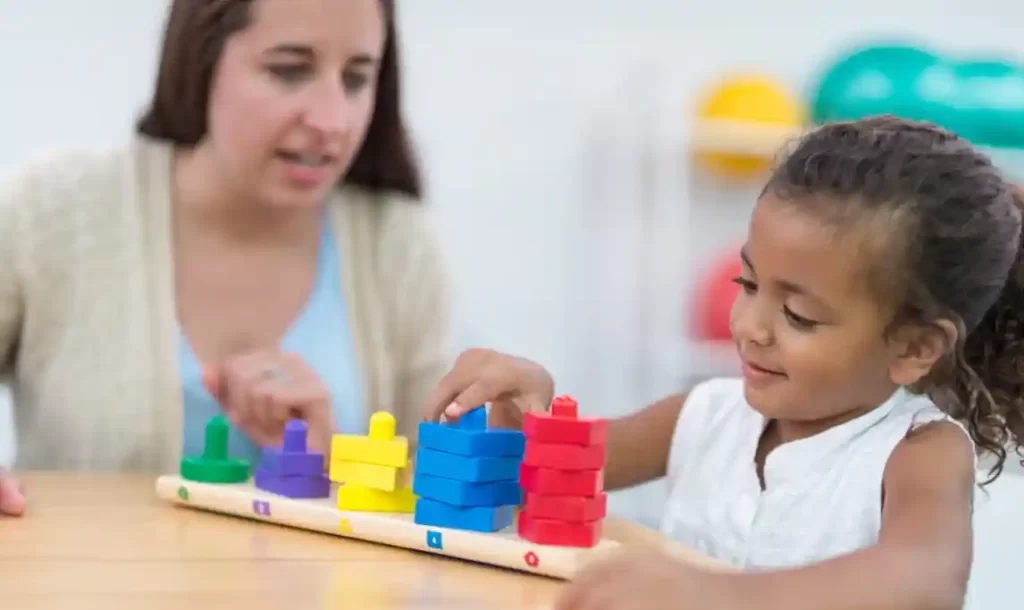
Poor hand-eye coordination is a significant pediatric occupational therapy sign because children may not catch a ball, have difficulty with writing, or fail to stack objects in an orderly manner. These are important skills for school readiness and play.
- Signs include difficulty tracking objects or accurately placing items.
Occupational therapy allows coordination between vision and movement in the hand.
7. Behavioral and Emotional Regulation Issues

Behavioral and emotional difficulties in controlling behavior are among the typical pediatric occupational therapy signs. A child who often experiences mood swings or cannot effectively control behavioral impulses within social situations might require therapy to better balance emotions.
- Outbursts, behavioral impulsiveness, and lack of response to instruction often indicate some type of the above disorders.
Occupational therapists help children acquire various ways of coping and regulating emotions.
8. Attention, Focus, and Organization Issues
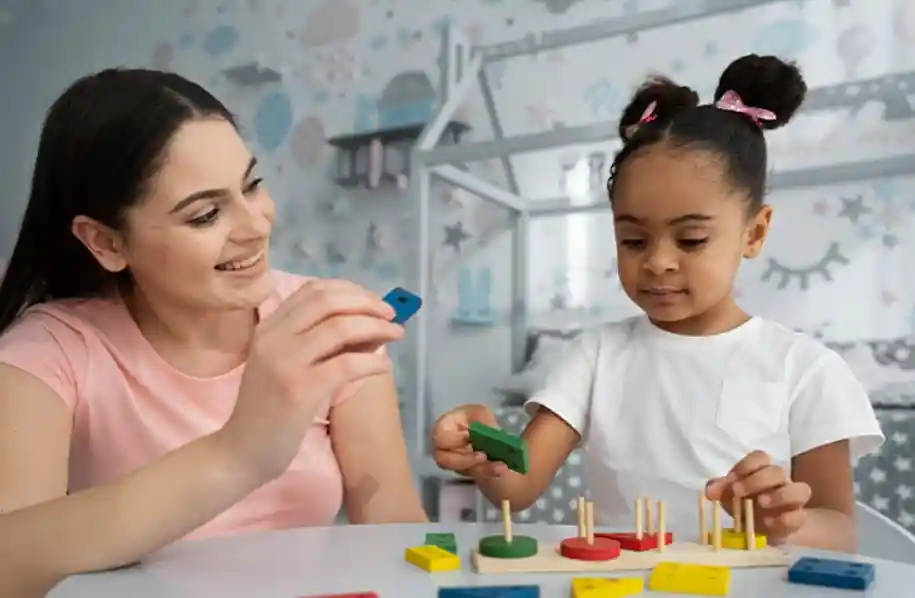
Some of the features of pediatric occupational therapy include children who cannot concentrate, organize their activities, and also do not follow instruction. Such children experience a lot of difficulties in transitioning from one activity to another.
- Signs include easily getting distracted, or finding it difficult to complete tasks.
- Occupational therapy helps children in improving their attention span and organizational skills.
It might be pretty early in the developing stages of your child that you realize pediatric occupational therapy symptoms. Thus, after noticing any of these indicators, you should find a pediatric occupational therapist on how occupational therapy can benefit your child’s growth and learning ability.
How OT Improves Children's Everyday Life?
Occupational therapy for kids focuses on occupational activities designed to help children learn the skills of daily living. Occupational therapy helps children can participate more effectively in his/her everyday activities, which may very well help him gain independence and confidence about his/her capabilities.
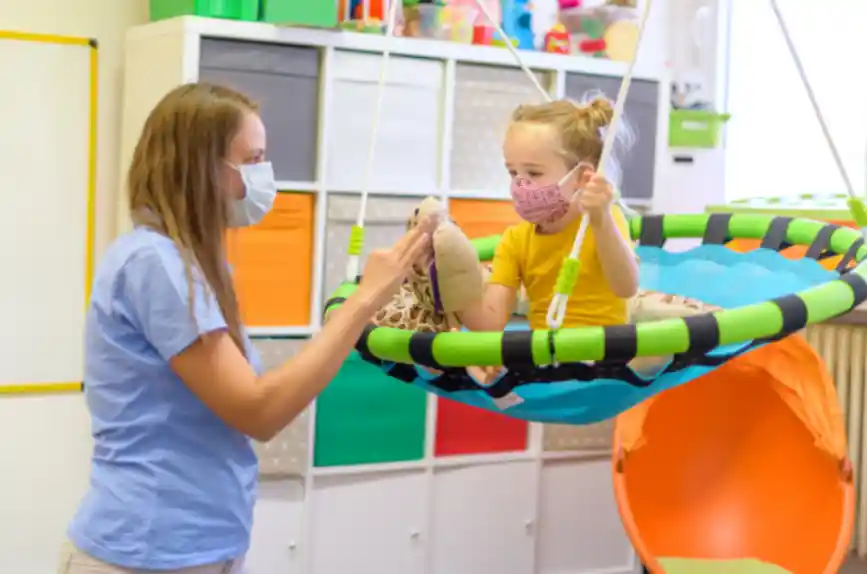
Here’s how Pediatric Occupational Therapy for Kids can improve their daily lives:
- Improves on Daily Living Skills: Therapy enables children to perform life’s daily body-care functions including dressing, grooming, and feeding themselves.
- Promotes Social Interaction: Through group activities and play, children develop social interaction skills that are crucial for building friendships and communication.
- Improves Focus and Attention: The theme events really help children with problems of concentration to better their attention and organizational skills to complete school and household tasks with relatively higher ease.
- It strengthens the fine and gross motor skill of the children. The movement of writing, utilization of scissors, playing sports, among others depend on these skills.
- Boosts Confidence: The more skill that a child acquires the higher their self-confidence, which encourages them to be active with the peers and relatives.
Parents can identify their children’s needs if they recognize some pediatric occupational therapy signs to help them thrive in daily life.
Why Early Intervention Therapy Is Crucial?
Early intervention is key to maximizing the benefits of Occupational Therapy for children. Addressing challenges early can have a profound impact on a child’s development.
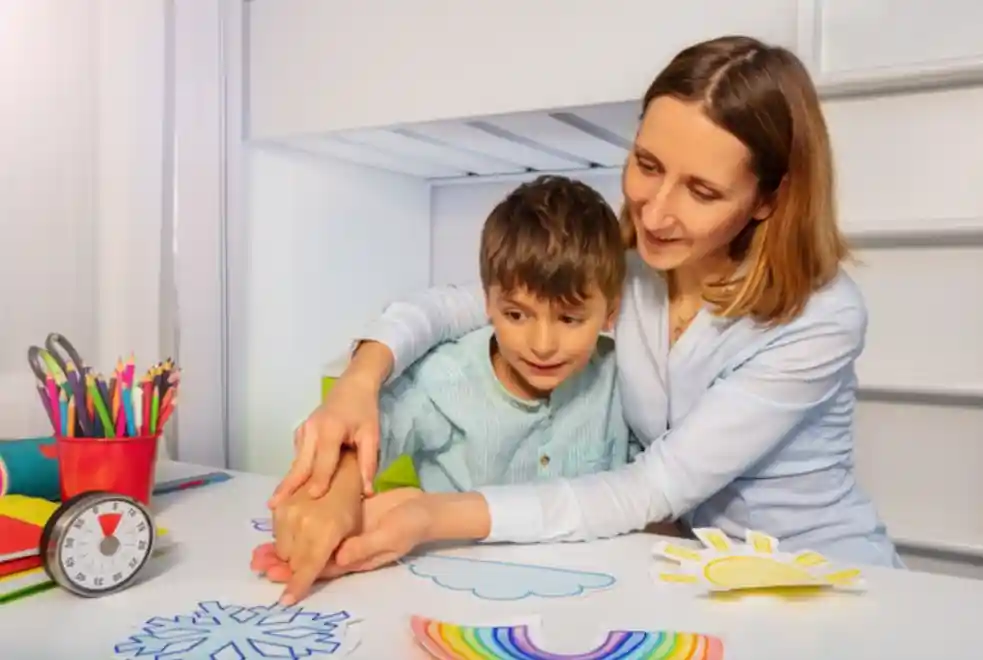
Here are several reasons why kids need occupational therapy at an early age:
- Brain Development: The early child period is a crucial time for the development of the brain in which intervention can bring out positive long term effects.
- Skill Acquisition: Early intervention therapy will ensure that the children acquire the necessary skills, thus a smooth catch-up with peers.
- Avoids Future Challenges: Early identification and resolution of problems encountered during development may avoid larger problems in the future, like academic problems or social isolation.
- Structured and coordinated support. This helps to make sure that early intervention is tailored to meet the individual needs of the child.
- Family Education: In early intervention, families are educated about their children’s difficulties and how to support the child effectively.
Understanding why do children need occupational therapy can empower parents in seeking the necessary help when they notice pediatric occupational therapy signs. Early participation in Occupational Therapy for Kids can set down the groundwork for a healthier and more fulfilling life.
FAQs
Yes, occupational therapy may help the child’s concentration and organization, thereby potentially relating to higher skills in fine motor. Thus, children can improve their performance in school by handling those weak areas.
You would thus be wise to consult occupational therapy as early as you suspect that there are developmental delays or difficulties that usually is at infancy. You will most likely reap benefits if intervention is made earlier.
The parent should be encouraged to participate along with the therapy process since their participation would enforce skills at home and provide valuable insights to the therapist about the child’s needs.
Such occupational therapy may also start in infancy depending on the child’s needs and must be approached at any age to help the child reach their developmental stages.

